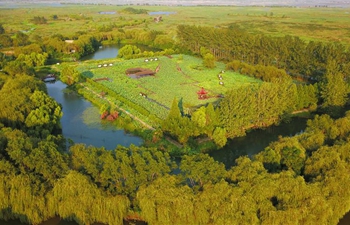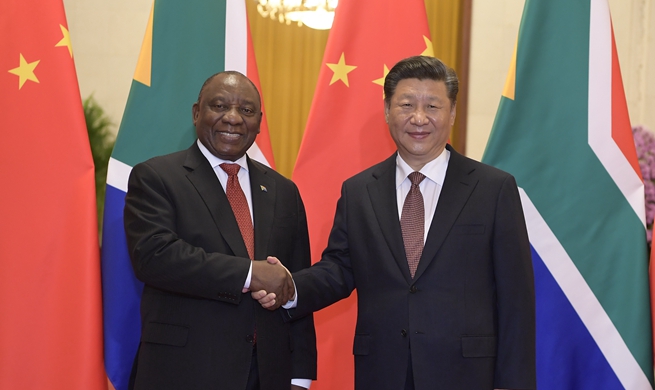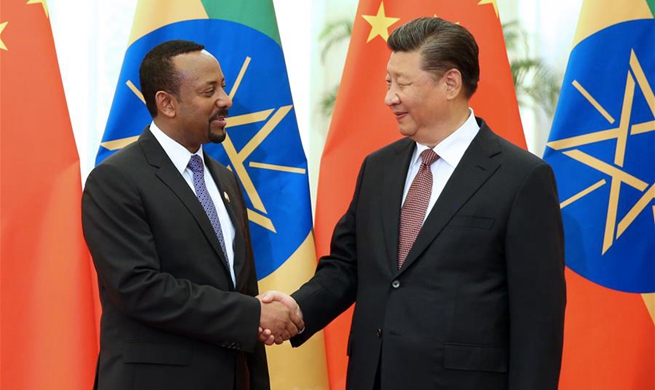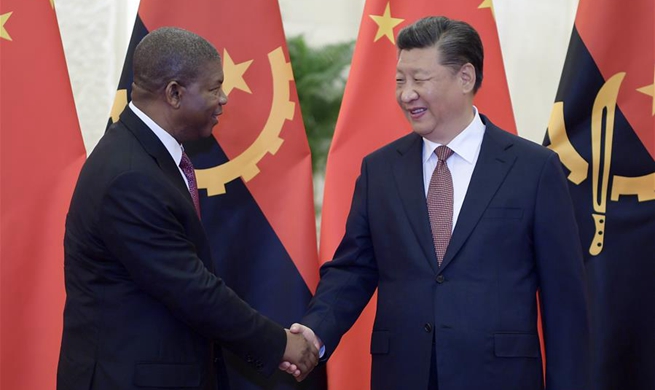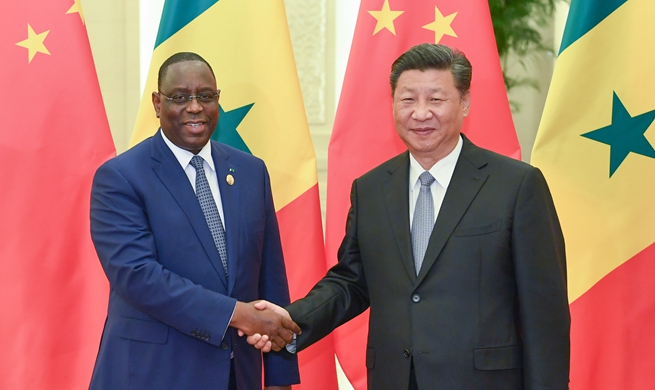by Muhammad Tahir, Jamil Bhatti
ISLAMABAD, Sept. 3 (Xinhua) -- Pakistani Prime Minister Imran Khan offered dialogue to neighboring India to find out a peaceful solution to bilateral problems after his Pakistan Tehreek-e-Insaf (PTI) party formed the new federal government last month.
Imran Khan said in his victory speech on July 26 that "I think it will be very good for all of us in the two countries if we have good relations."
"Pakistan and India's leadership should sit at a table and try to fix their problems. We are at square one right now (with India). If India's leadership is ready, we are ready to improve ties with India. If you step forward one step, we will take two steps forward. I say this with conviction, this will be the most important thing for the subcontinent, for both countries to have a friendship," he said.
On the invitation from Khan, famous Indian cricketer-turned-politician Navjot Singh Sidhu participated in his oath-taking ceremony in Islamabad, a gesture which was warmly welcomed by Pakistanis in the backdrop of Khan's policy to have a dialogue with India.
Experts believed that the Pakistani prime minister's quest for dialogue with India has led to a debate in India and many Indians also want their government to resume comprehensive dialogue with Pakistan.
India had suspended bilateral dialogue with Pakistan in April 2016 after an attack on an Indian air base in January, which New Delhi blamed on Pakistan-based militants. Pakistan had denied any involvement and offered cooperation in the investigation. India later also boycotted the South Asian Association for Regional Cooperation meeting that Pakistan was scheduled to host in November 2016.
Juma Khan Sufi, a writer and political watcher, said that Imran Khan's proposal for negotiations with India had a widespread positive impact in India.
"I think the Pakistani prime minister should keep on talking about his narrative for dialogue with India as this approach could end to the years of deadlock in bilateral talks between Pakistan and India," Sufi told Xinhua in a recent interview.
Sufi believed that it is a very positive development because political leaders, including the pro-India, have also thrown weight behind Khan's policies to peacefully resolve disputes with India.
"Resumption of official dialogue will not only give a boost to bilateral trade and people-to-people contacts which can pave the way for progress on efforts to find out a solution for their disputes," Sufi said.
In a positive gesture, Indian Prime Minister Narendra Modi spoke to the new Pakistani leader by phone to congratulate him on assuming the office of the prime minister and underlined the need for improved relations.
On Wednesday last week, a nine-member Indian delegation visited Pakistan's eastern city of Lahore to have talks under the ambit of the 1960 Indus Water Treaty. It was the first bilateral engagement between the two neighbors since Khan came into power.
The water talks reportedly ended in a deadlock after the Indian delegation refused to accept Islamabad's objections over two hydro projects in Indian-Controlled Kashmir. However, a source from the Pakistani side told Xinhua that it cannot be called a deadlock as a two-member Pakistani delegation is expected to visit India in September for the next phase of the talks.
Domestically, Khan's announcement to opt for good neighborly relations, including with India, was welcomed across Pakistan.
Muhammad Zia-ur-Rehman, a professor at the National Defense University in Islamabad, viewed that tension-free relations with neighbors are a key aspect of Pakistan's diplomacy.
"The PTI has been criticizing the foreign policies of the previous governments, therefore, this time it will be a challenge for the ruling party to come up with better, more efficient and effective one," Zia-ur-Rehman told Xinhua.
He also pointed out the possible challenges Khan could face in foreign policy options saying that the foreign policy might be revised by the Pakistani government. It seems there is a willingness in both countries to reduce tensions and inch towards the resumption of dialogue as Khan made repeated calls for resumption of the dialogue.
He said that Modi's phone call to Khan is being taken as that India is also willing to engage with Pakistan.
Meanwhile, there are reports that Pakistan Foreign Minister Shah Mahmood Qureshi is likely to meet his Indian counterpart on the sidelines of the upcoming UN General Assembly session in New York in September. If it happens, this will could be an ice-breaking meeting for the bilateral relations, according to the analysts.



